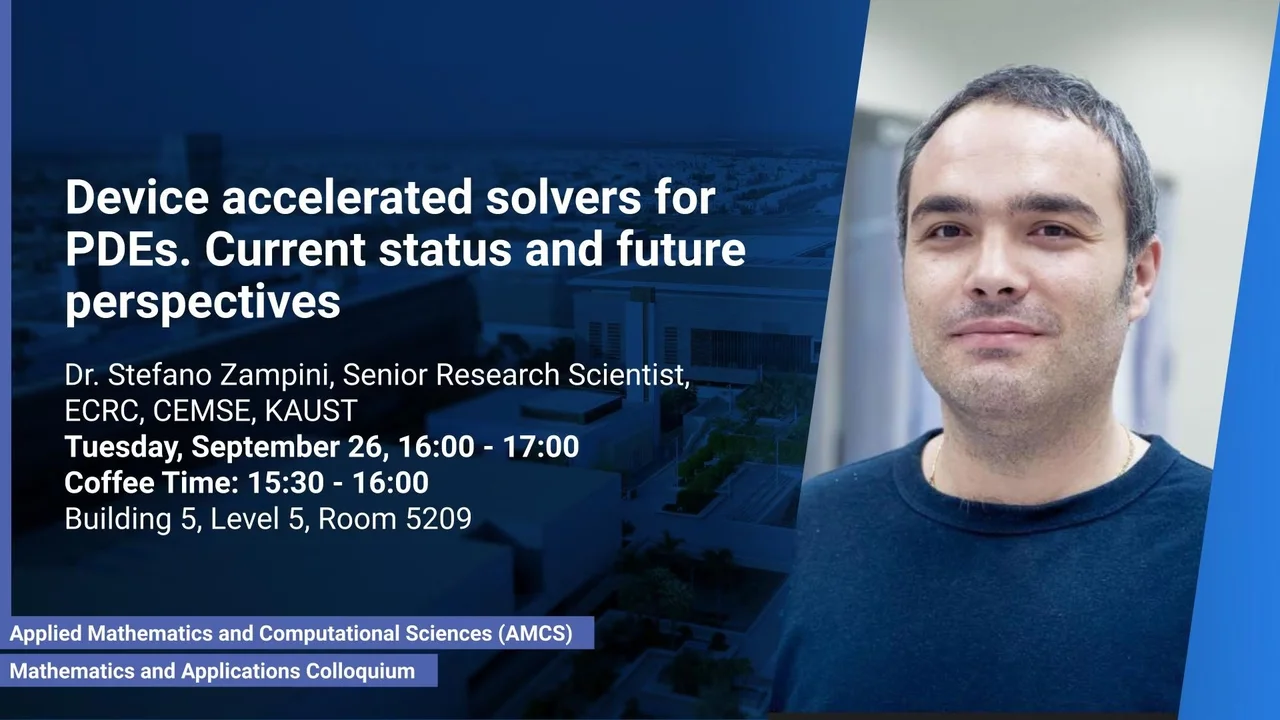
Device accelerated solvers for PDEs. Current status and future perspectives
In the next months, KAUST expects to place into service Shaheen-3, a supercomputer with a GPU partition whose planned 1 Exaflop/s HPL AI capability would rank it in the Top 6 globally if delivered today.
Overview
Abstract
In the next months, KAUST expects to place into service Shaheen-3, a supercomputer with a GPU partition whose planned 1 Exaflop/s HPL AI capability would rank it in the Top 6 globally if delivered today.
Despite the revolutionary impact of GPU computing power on various computational tasks, challenges emerge when trying to efficiently utilize these architectures for the solution of large nonlinear systems of partial differential equations, highlighting the need for tailored algorithms.
In this talk, I will discuss recent developments towards exploiting GPUs with the Portable and Extensible Toolkit for Scientific Computing (PETSc), an award-winning software for the numerical solution of large systems of nonlinear and time-dependent partial differential equations.
The focus will center on diverse components essential to PDE solver construction, encompassing Krylov methods, direct solvers, preconditioners, multi-GPU communications, and distributed sparse matrix-matrix multiplications. The objective is to furnish the audience with valuable insights into attainable and realistic performance expectations.
Brief Biography
Stefano Zampini earned his PhD in Computational Mathematics from the University of Milan in 2010. His main research interests are on the solution of large-scale nonlinear systems of equations arising in partial differential equations and deep learning training. His past work mainly focused on non-overlapping domain decomposition preconditioners of the dual-primal type (namely, BDDC and FETI-DP type methods) for solving large and sparse linear systems arising from finite element discretizations and IsoGeometric Analysis. Before joining KAUST in 2014, he worked for the Italian Supercomputing center CINECA, with a specific interest in optimization and parallelization of oil and gas applications, and for the Italian weather forecast agency.
